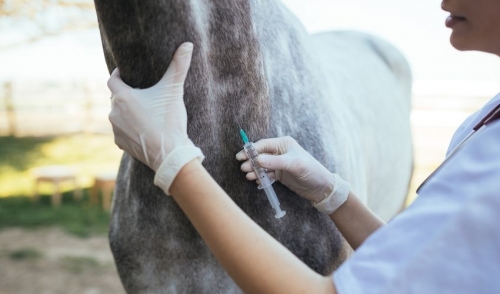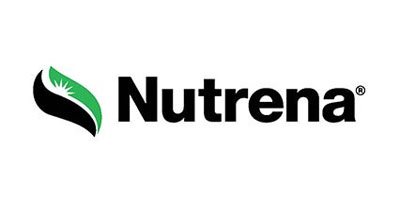{article.name}
Stay Informed
Vaccinations and Parasite Control in Fall and Winter

- Share this:
- Share on Facebook
- Pin on Pinterest
- Tweet on Twitter
Vaccinations and parasite control are critical in fall and winter, just as you are bringing your livestock into close contact in preparation for colder months and harsher weather. By taking steps to protect your cattle, sheep, horses, pigs, goats, and other livestock, you can ensure they are prepared for a safe and healthy cold season.
Why Fall and Winter Are Dangerous for Diseases and Parasites
Many diseases that can afflict different types of livestock are highly communicable, easily spread though contaminated feces, urine, saliva, and close physical contact. In fall and winter, animals are often brought together for safer shelter and more convenience for feeding and care, making it easier for diseases to spread through an entire herd or flock. Even animals in larger shelters may naturally group together for warmth during cold snaps, giving diseases an opportunity to move between animals. Furthermore, harsher weather and seasonal stresses can make animals more vulnerable to infections in fall and winter, and even mild infections or infestations may have severe impacts.
Parasite control and vaccinations must also work together. Animals that carry a heavy parasite load may already be in less than ideal condition, making them more susceptible to infections. Vaccines can be less effective for parasite-ridden livestock, creating even more difficulty in protecting animals from infections.
Fall and winter vaccinations and parasite treatments are especially critical for young animals that may be in the process of weaning, as well as for animals that are pregnant or will become pregnant in the weeks and months to come. A mother’s immunity will be passed along to her offspring through initial feedings, and if the pregnant female is not immunized or has higher than typical numbers of parasites, the offspring will be less healthy as well.
With all these considerations, it is clear that a thoughtful vaccination and parasite control regimen is essential in fall and winter, and will help animals not only survive the cold season, but be in their best condition when spring arrives.
Choosing the Best Vaccinations and Parasite Control for Your Animals
There is no single course of vaccinations or parasite treatments that works best for all animals. To ensure the best treatments for your specific livestock, it is best to consider:
- Animal Type: Different types of livestock are susceptible to different viruses and parasites, and therefore require different treatments for the best resistance. Vaccination and parasite control plans should be individually designed for different livestock species.
- Local and Regional Risks: Different areas are at different risks for certain viral outbreaks and parasite infestations, depending on geography, climate, and other environmental conditions as well as recent local outbreaks. These conditions should be factored into any treatment regimen.
- Accurate Dosages: The proper dosages of different vaccines and parasite control treatments will vary greatly depending on an individual animal’s size, gender, age, pregnancy state, and overall condition. Individual treatments should be customized to suit each animal best.
- Internal and External Treatments: While vaccines are internal treatments, parasite control options should take into consideration both internal (worms) and external (lice, fleas, ticks) pests. Thorough treatment will address all possible parasites for the most well-rounded care.
- Environmental Treatment: In addition to treating the animals, the surrounding environment should also be treated for pests to eliminate potential contamination. Manure should be broken up and disposed of, pastures should be rotated, water supplies should be clean, and feeding areas should be disinfected if possible. This will minimize any risk of cross-contamination or re-infecting animals even after being vaccinated or treated for parasites.
In addition to thorough vaccination and parasite control treatments, it is important to provide the best possible conditions and care for livestock through the fall and winter. This includes adjusting feeding types and schedules to provide sufficient fuel to maintain body heat, providing shelter or windbreaks as needed, being ready with extra supplies or emergency measures in case of severe storms, and closely monitoring all animals for any signs of disease, injury, or malnutrition. The more aware you are of your animals’ conditions and needs, the better prepared you will be to keep them safe, healthy, and comfortable until spring.
Special Offers
We are constantly adding new specials to our site. Be sure to check back often!




Comments